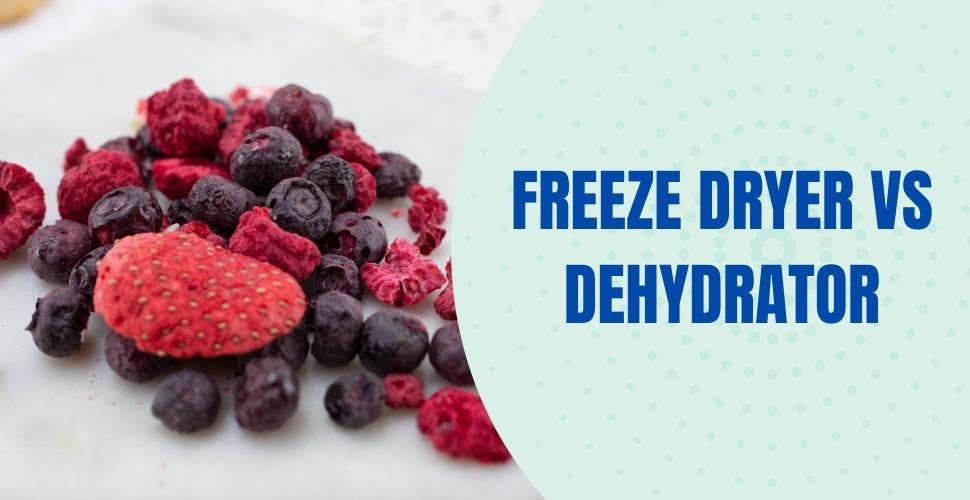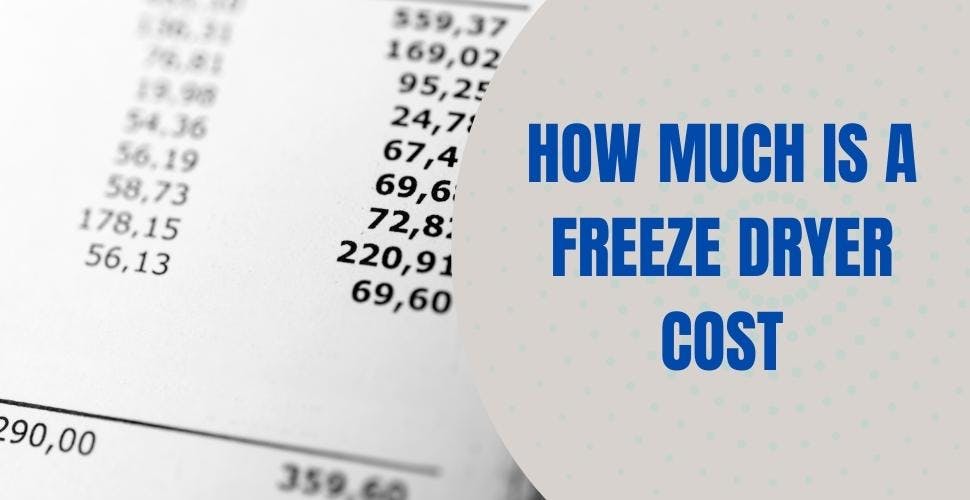Disadvantages of Freeze Dryers
 Dr. Tontul
Dr. Tontul- 10 Aug 2023

Freeze drying, also known as lyophilization, is a popular method of dehydrating food. By freezing the food and removing moisture through a vacuum chamber, freeze drying not only retains taste and nutrients but also prevents microbial growth.
While freeze drying offers several advantages, it's essential to consider the disadvantages as well. In this article, we'll explore the drawbacks of freeze dryers, including the slow process, electricity usage, storage challenges, and the high initial cost.
Slow Process - Patience is Key
One of the main drawbacks of freeze dryers is the time-consuming process. The average cycle for freeze drying is more than 24 hours. For busy individuals or businesses looking for quick food preservation solutions, this can be a significant disadvantage.
Limited Food Options
Not all types of food can withstand the freeze drying process. Freeze drying is easily applicable to foods like fruits and meats.
On the other hand, some foods such as candies may require pretreatment and special conditions to be freeze dried. Moreover, oil and sugar-rich products (butter, nut butters, chocolate, etc.) cannot be freeze dried. Therefore, some foods can present a challenge for those looking to preserve a variety of food products.
Airtight Containers Required for Long-Term Storage
Freeze-dried foods retain their original shape and size during processing. However, the unique principle of freeze drying causes a sponge-like microstructure in the dried product.
The structure of freeze drying makes them susceptible to environmental conditions such as humidity, oxygen, and minerals. Therefore, to ensure the quality and shelf life of freeze-dried foods, they must be stored in airtight, moisture-tight containers such as jars or mylar bags. If not properly stored, freeze-dried foods can deteriorate rapidly, leading to waste and potential financial loss.
No Space Savings - Bulkier Food Products
Unlike other dehydration methods, freeze drying retains the cellular structure of the food, resulting in bulkier food products.
This can be a disadvantage for individuals or businesses with limited storage space. The high volume of freeze-dried foods may pose logistical challenges in handling and transportation.
High Initial Cost - A Considerable Investment
One of the most significant drawbacks of freeze dryers is their expense. Currently, entry-level home freeze dryers can cost around $2,500, while more advanced models can reach $5,000 or more. The high investment budget requirement may discourage some people from adopting freeze-drying as a preservation method.
Electricity Usage - Consider the Impact on Bills
Freeze drying requires a considerable amount of electricity, leading to potentially higher electric bills. Depending on the location and frequency of use, electricity costs can add up significantly over time. It's essential to weigh the long-term benefits of freeze-dried foods against the electricity expenses.
For more information about the electrical consumption of freeze dryers, read this article.
Batch Quantity - Smaller Batches
Freeze dryers have limited capacity. This means food must be freeze-dried in smaller batches. For those who need to preserve large quantities of food in a short time, this can be inappropriate. Multiple cycles mean several days of processing.
More Time Intensive - Plan Accordingly
As freeze drying takes longer than other preservation methods, it demands more effort and time from the user.
Food items with higher water content may take days to be fully freeze-dried, and this time factor must be considered when planning food preservation.
Conclusion
Freeze dryers are a valuable method of preserving food, maintaining taste, nutrition, and quality. However, it's crucial to consider the disadvantages, such as the slow process, limited food options, storage challenges, and the high initial cost.
The decision to invest in a freeze dryer should be based on individual needs, priorities, and long-term goals. For some, the benefits of freeze drying may outweigh the drawbacks, making it a valuable addition to their food preservation techniques.
Nonetheless, it's essential to carefully weigh the pros and cons to make an informed choice that aligns with your specific requirements and resources.


